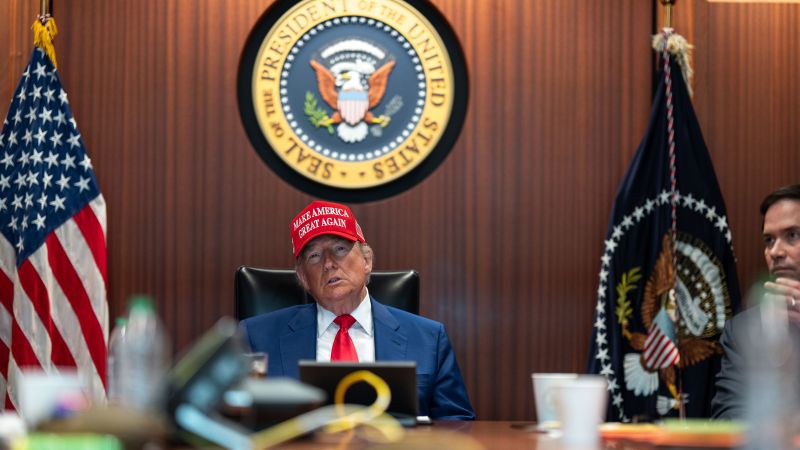Trump's Iran Strikes Spark Debate Amidst Constitutional Concerns
The controversy surrounding Trump's actions has significant implications for the balance of power in the US government, with critics arguing that the president's actions could be grounds for impeachment. As the debate continues, Congress must navigate its role in declaring war and limiting the president's powers, while the Supreme Court's rulings on executive powers will be closely watched.

US President Donald Trump's decision to authorize strikes against Iran's nuclear facilities has ignited a fierce debate over the limits of his executive powers and the role of Congress in declaring war. Critics argue that Trump has overstepped his authority by launching the attacks without congressional approval, violating the Constitution and the War Powers Resolution.
The US Constitution grants Congress the power to declare war, but Trump has relied on Article II of the Constitution, which gives the president authority to direct US military forces in engagements necessary to advance American national interests abroad. However, many legal experts and lawmakers contend that this action constitutes a declaration of war, which only Congress can declare. The War Powers Resolution of 1973 requires advance consultation with Congress before entering US troops into hostilities, which was not done in this case.
The controversy surrounding Trump's actions has sparked comparisons to the second Iraq War, with some lawmakers and experts warning that Congress must review the intelligence and take action to restrict the president's powers. The American Civil Liberties Union (ACLU) has suggested that Congress can act on a bipartisan basis to restrict funds for such actions without its buy-in or hold public hearings to air the Trump administration's military and legal justifications.
As the debate continues, the US Supreme Court's generosity in approving Trump's expansive use of power has raised concerns among critics, who argue that the president's actions could have far-reaching implications for the balance of power in the US government. With the Supreme Court's recent ruling allowing the Trump administration to continue deporting migrants to countries other than their homeland, the issue of executive powers and constitutional limits is likely to remain a contentious issue in the coming months.